Happy New Year...
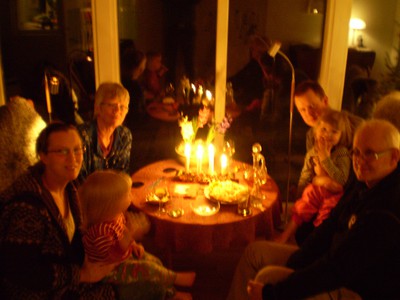
...from Skeda gård, Rydaholm, Sweden. Our family estate and yours.
Hope to see you in July!
Christmas 1964, Danderyd
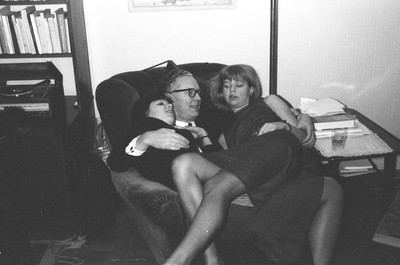
My grandfather with two daughters. This is what I just told my mother: "Grandpa is a person who is forgotten more than he deserves to be". When and if I write my book about the family, I will try to give a picture of who he was and what he stood for. Among other things, he was very concerned about environmental issues.
My Christmas present for Ella
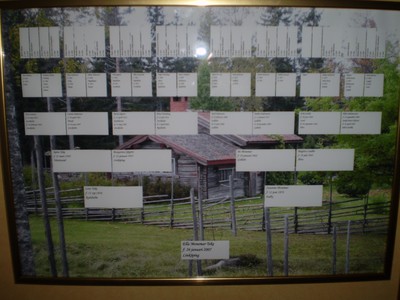
Family is fun.
Christmas at Skeda, 1976
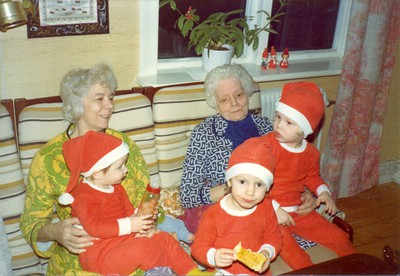
Grandma and great gradma with Jakob, 1, Anna, 3, and Hans, 3.
The ladies' facial expressions are significative.
Breaking-up for Christmas in Leksand's church

The baptism of Joline...
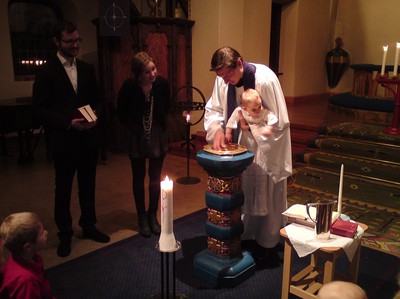
...last Saturday. Joline is daughter of my cousin Mikael Larsson, whom I met the last time in 1997 (at my grandmother's funeral).
My nature-loving aunt Anniqua...
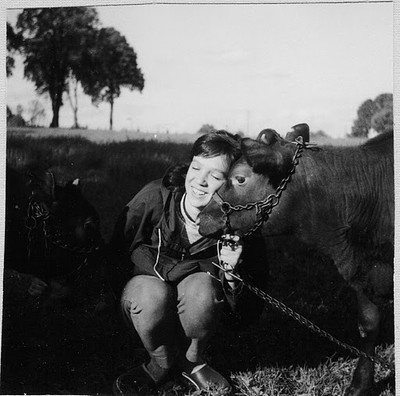
...in a wonderful photo from around 1960. Of course my grandfather took it; the qualíty speaks for itself.
Praise to the silence
Silence is important and, in our society, underrated.
Great thoughts need silence to be born.
Great insights as well.
Silence does not mean a lack of communication.
It just means to let the communication show
what we think, who we are, here and now.
Congratulations Dick, 80 years old.
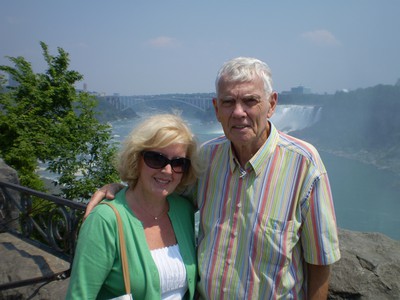
This photo, in front of the Niagara Falls, was taken in July of 2007 when I visited Dick and Margaret in Grimsby, Ontario, Canada for the first time. Richard Lindman Ring is his full name, with Lindman as the second and Ring as the surname. Dick is the youngest member of his generation and the oldest person of our family living today. To me he is the living link between Lydia Lindman and Facebook.
In her diary from January 10, 1936, Lydia writes: "Kerstin came to us in November with three children [...] it was so fun having her and Dickie here before Christmas. The boy is so adorably cute and nice too". When Dick and I translated Gösta Wennberg's wonderful essay about his grandmother it was an honor to do it in cooperation with someone who actually met her.
If I should use a word to describe Dick it would be concerned. After retiring from the work as a manager (sales and research in publishing) he has been active with volonteering. From 1999 to 2005, he was involved with a project in Guatemala whose aim was to help the poor. Today he visits the elderly in the local area, talks to them, sometimes drives them to the doctor. His own comment is that "it's a big mistake to do nothing because you can only do a little".
He has four children: Deborah and Carolyn (with Joan Treloar), Michael and Stephen (with Margaret); I guess they are all, right now, on their way to Grimsby. And that they agree with me when I say: we should be grateful for still having Dickie around. Write to him about politics, economy, environment, philosophy - he will have an opinion. Write to him about anything that you have at heart and he will care for you. A big hug to the Grand Old Man!
Read our conversation from 2009
Listen to him in the voicebank
A photo from 1986...

...when I visited my father's parents in their summer home at Ljusterö outside Stockholm. This was the first time that I really met Johan; even on the boat before reaching the island we had interesting conversations. On Ljusterö I recall that Johan and I played a lot of badminton. My grandfather was a very dominant person and my grandmother - well, she didn't show much of herself at all.
Am I nostalgic about the 80's? Yes and no. I think I would like to relive it, at least parts of it. But only with the knowledge and the experiences that I have today. (Grandma, grandpa - I have some questions for you.)
Salomon, our common source...
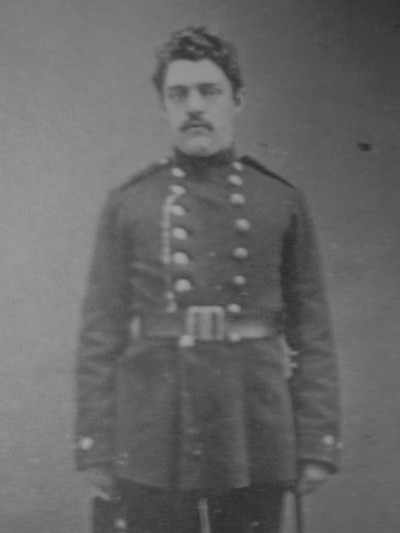
...when he made his military service. Later on he became a business man and a politician in Jönköping, where he died in 1897. In a book from the 1930's it says about him that "behind his serious appearance there was a good heart and a good-natured, dry sense of humour".
Myself, if I had the chance to meet him, I would try to explain the internet to him, which would be a really interesting pedagogical challenge.
The power of the question

There is a story about a philosophy class somewhere in Sweden. The teacher makes a test for his students, where he writes on the top of a paper, as the first question: Is this a question? The students become slightly chocked, finding this extremely difficult, not knowing how to think just to be able to write anything at all. Suddenly one of them comes up with a brilliant idea. He writes: Yes, if this is an answer.
My own way of thinking and existing can be summarized thus: It is more important to make the questions than to be able to answer them. A well-formulated question can have a terrible power, for even if you cannot give a straight answer, it opens a door to what you don't know (even if you may have believed that you knew it). Once a question is made you have to relate to it (or ignore it which is also a way of relating). For understandable reasons, dictators did never appreciate intellectuals.
To me, the power of the question lies in its ability to reveal. It reveals something about the person who answers it, who doesn't quite answer it or who doesn't answer it.
But even more, it reveals something about the person making it. It reveals his or her level of interest in, knowledge and understanding of the subject in which the question was made. What we don't know can only make sense in terms of what we do know - may it just be that X is X. I'm therefore planning to make a test for my students, where their only task will be to formulate the questions.
May I present...
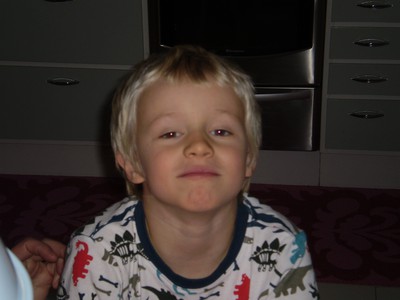
...Malkolm Vidlund (born 2004), son of my cousin Anna. I am his godfather. This summer at Skeda, Malkolm stated that "It's a little bit hard to know who is Hans and who is Larz."
10 questions you should ask your older relative
2. How would you characterize your mother?
3. How would you characterize your father?
4. Did your parents have a good relationship? If not, do you remember any problems?
5. Which one of your siblings were you the closest? Why?
6. Tell me about some memories from your childhood!
7. Which period of your life would you say was the most happy one? Why?
8. Which period of your life would you say was the least happy one? Why?
9. What is the most important lesson that life has taught you?
10. How would you like to be remembered?
